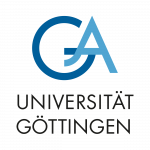- # Infoveranstaltungen intern
- # Ordnungsänderungen
- # Qualitätsrunden
- # Schon gewusst?
- Absolventenfeier
- Allgemein
- Anmeldezeiten Module
- Auslandsstudium
- Bachelor
- FlexNow
- Infos der Fachgruppe
- Klausureinsicht/Prüfungen
- Master
- Master KliPPT
- O-Phase für Erstsemester
- Pb-Stunden
- Praktika & Jobs
- Prüfungsamt
- Sprechzeiten/Urlaub/Krankheit
- Stundenplan
- Veranstaltung/Vortrag
- Wichtige Infos!
-
Archiv
-
Suche
-
Kontakt
-
Studiengangskoordination
und Fachberatung Psychologie
Dr. Nuria Brinkmann
Sprechzeiten: Die, Mi, Do 9 - 12 Uhr
Tel. +49 551 39 23652
Email Studienbüro Psychologie
Terminvergabe in Stud.IP -
Studiengangskoordination und Studienberatung Master Klinische Psychologie und Psychotherapie
Dipl.-Psych. Cornelia Bernardi-Pritzkow
=> Sprechzeiten
Email Studienbüro Klinische Psychologie und Psychotherapie
Tel. +49 551 39 29262
Terminvergabe in Stud.IP
Archiv des Monats: September 2022
Therapeut/in gesucht
floriano.motisi@praxismotisi.com
Veröffentlicht unter Praktika & Jobs
Kommentare deaktiviert für Therapeut/in gesucht
Hiwi gesucht
maximilian.blomberg@uni-goettingen.de
Veröffentlicht unter Praktika & Jobs
Kommentare deaktiviert für Hiwi gesucht
Psychologe/in gesucht
Veröffentlicht unter Praktika & Jobs
Kommentare deaktiviert für Psychologe/in gesucht
Proband*innen gesucht
Veröffentlicht unter Pb-Stunden
Kommentare deaktiviert für Proband*innen gesucht
Einladung zu Vorträgen
Dear all, We would like to invite you to two talks by Bipin Indurkhya on child-robot interaction and AI in Psychotherapy. This will be a hybrid event. If you wish to attend in-person, please send an email to fatih.sivridag@uni-goettingen.de so … Weiterlesen
Veröffentlicht unter Veranstaltung/Vortrag
Kommentare deaktiviert für Einladung zu Vorträgen
Proband*innen gesucht
Interesse geweckt? Anmeldung zur Studie und mehr Infos auf: https://picturegame.formr.org/
Veröffentlicht unter Pb-Stunden
Kommentare deaktiviert für Proband*innen gesucht
Einladung zum virtuellen climb-Besuch
Sehr geehrte Damen und Herren, liebe Freunde und Partnerinnen von climb, … und schon steht der Herbst vor der Tür! Daher heißt es zum letzten Mal in diesem Jahr herzlich willkommen bei climb: Für Live-Einblicke und Austausch mit Kindern, Lehrkräften … Weiterlesen
Veröffentlicht unter Veranstaltung/Vortrag
Kommentare deaktiviert für Einladung zum virtuellen climb-Besuch
Einladung zum Kolloquium
Dear all, Prof. Dr. Peter Carruthers (University of Maryland) will give a virtual talk at the CogSci Colloquium on Wednesday, Sept 28th, at 15:00 (CEST). Title: Questioning and model-free meta-cognition Abstract: There has been a flurry of recent work on … Weiterlesen
Veröffentlicht unter Veranstaltung/Vortrag
Kommentare deaktiviert für Einladung zum Kolloquium
Proband*innen gesucht
https://www.labvanced.com/player.html?id=36528 mailto:jana.tatian@stud.uni-goettingen.de
Veröffentlicht unter Pb-Stunden
Kommentare deaktiviert für Proband*innen gesucht
Kinder- und Jugendpsychotherapeut*in gesucht
Veröffentlicht unter Praktika & Jobs
Kommentare deaktiviert für Kinder- und Jugendpsychotherapeut*in gesucht

